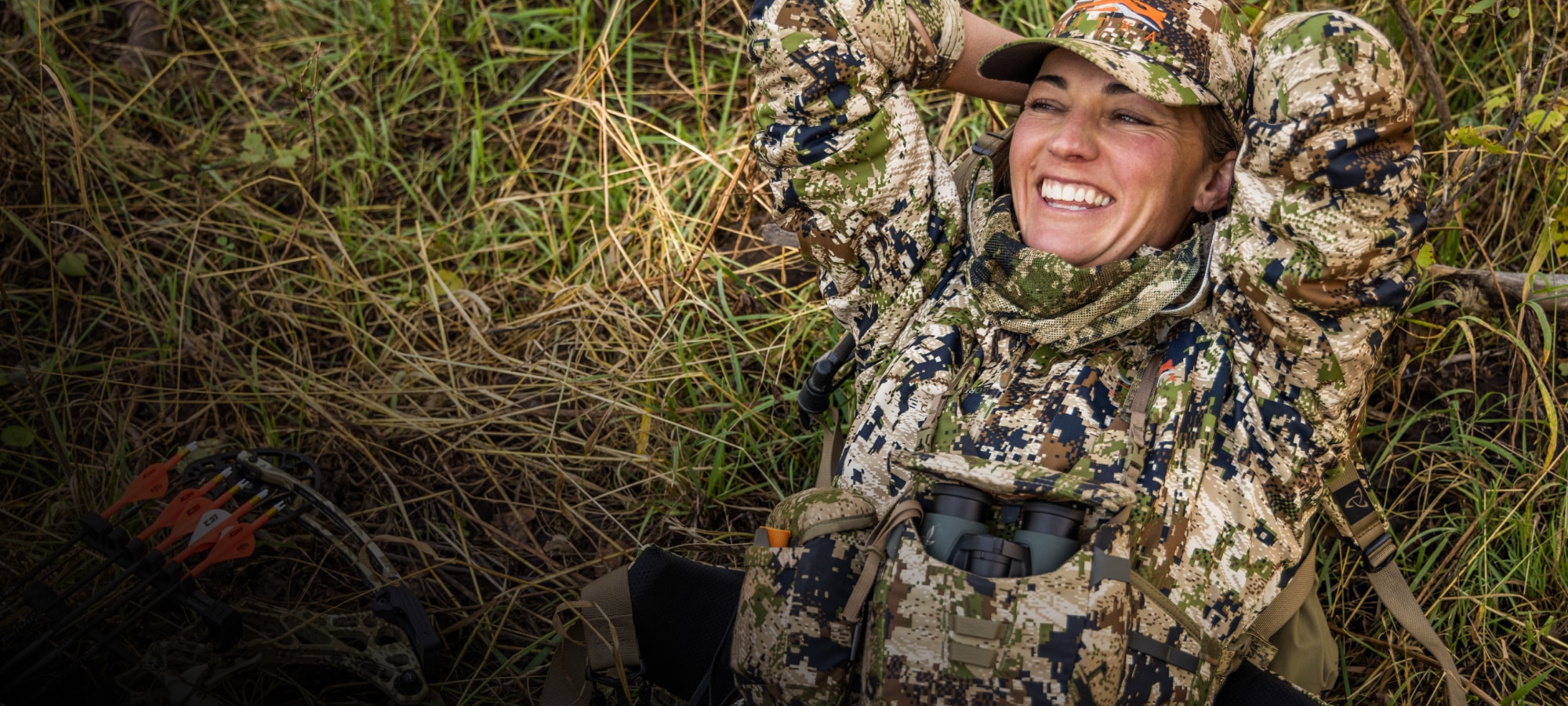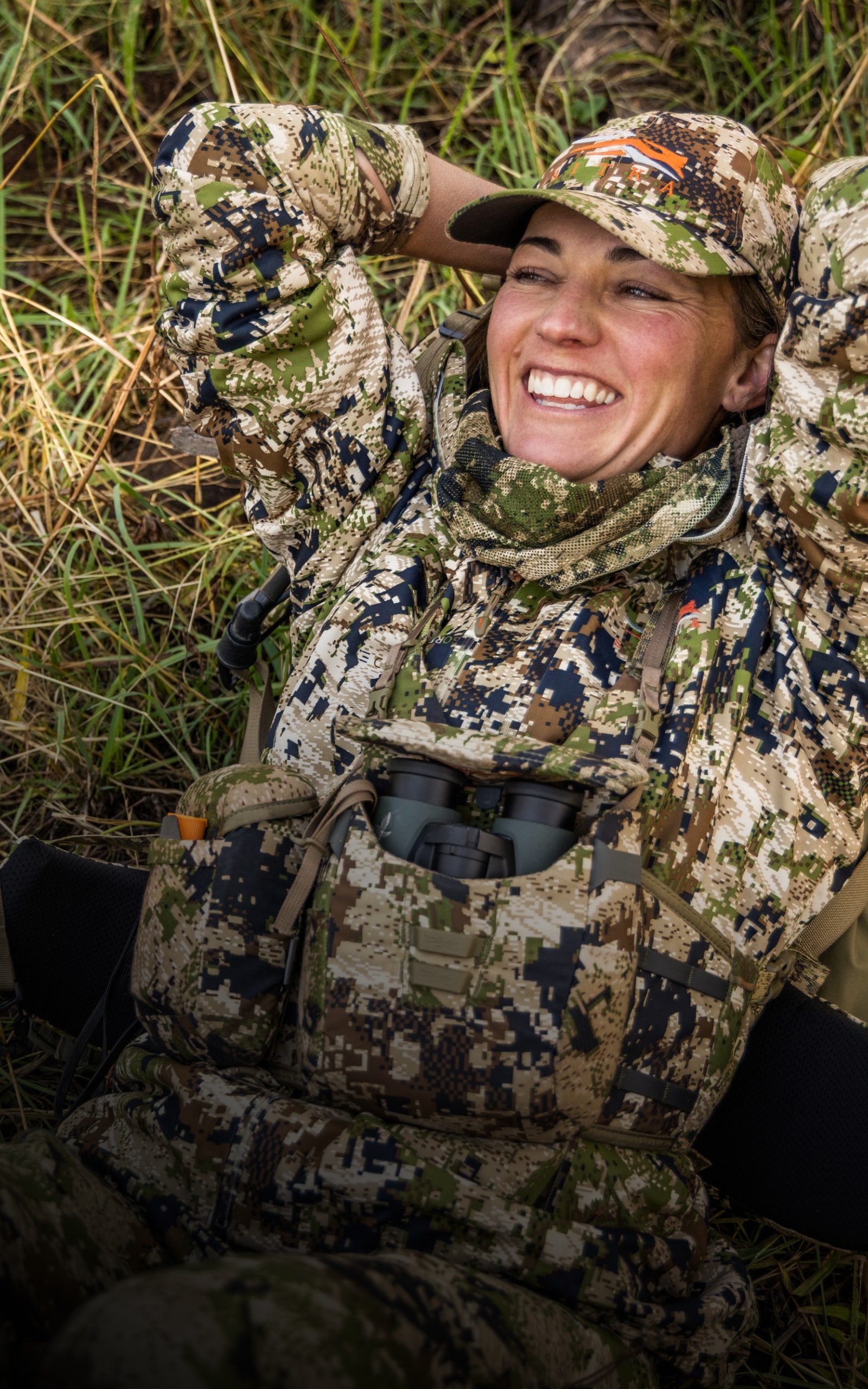I was never supposed to be a hunter. I didn’t grow up exposed to it, nor did anyone in my family. But after years of getting my hands dirty peeling back the layers of nutrition, food systems, and ecosystem health, I arrived at its doorstep. Hunting had merged with my land ethic, and I now needed to figure out how to do it.

Being in the outdoors was always a priority for my family growing up, but it was a place we visited and then went home. I was raised on healthy food, but unaware of how it connects us to the land. I didn’t know what a seasonal vegetable was until I was 21. Food was just food; there for me to use. So were wild places—they were playgrounds; places to ski, hike, camp, get lost in, and explore.
It took spending two months straight in the backcountry learning about permaculture and ecopsychology for me to understand how my health was tied to that of the landscape around me. I learned how to grow food and identify and harvest wild plants, mushrooms, and medicines simultaneously. This new way of looking at my relationship to the landscape through food and connection lit a fire in my being that I could no longer tamp down.
Suddenly, hikes were no longer just hikes—I was glued to field guides, identifying different characteristics of plants, trees, and mushrooms, and tailing any naturalist I could learn from. I loved learning how everything was working together in the ecosystem to survive, and how many functional, edible, and medicinal uses surrounded me if I studied and engaged. When I'd harvest wild food and bring it back home to enjoy, that wild place became a part of my everyday life and I loved that closeness.

The wilderness became a canvas of wild foods and medicines. Sometimes I’d be deep in the backcountry for weeks at a time, and now knew how to cure a stuffy nose, tighten up blistered skin, soothe burns and bug bites, and harvest seaweed, mussels, and wild greens to eat—I felt alive and at home in a whole new way. It was the same with farming. I got hooked on the deep connection to place I was experiencing, and how my food tied me to a life lived more fully and richly connected to the land.
It wasn’t long before these pursuits led me to animal processing. Again, something I never thought I’d do. It started because a teacher assigned me to the task of skinning a fox. And while I denied my capacity to do it logically, I watched as my hands took over, exploring and somehow knowing the work—right at home. I got fixated on the newfound, deep intimacy with a wild animal—the ability to study the fur between the toes, silencing prowl; the perfectly camouflaged coat; everything about it. I skinned or processed an animal every chance I got—laying wings up in nature centers, making casts of tracks, preserving skulls and skeletons. Pretty soon I was known as the ‘roadkill lady’ in town; the one willing to see what could be saved.

I started raising animals for meat—chickens, goats, ducks, and pigs. I sought out any land management position I could find; learning as much as I could about homesteading and resourcefulness. I tended grasslands and thinned firs to manage for oaks and hazels, while tending a garden and fighting to keep deer out of it. I hadn’t yet realized I was managing for deer. Backcountry pursuits were at odds with this lifestyle however—summer backpacking in the high country conflicted with apple harvests, and disappearing for river trips meant the garden and animals went unstewarded and without support.
Years went by and I found myself living in a city, with many of these homesteading resources now unavailable, and my mindset shifting. I started looking at the area of land that farming and animal husbandry takes up, and seeing how much habitat it can undermine. I sat down to my first plate of wild game with a friend of mine and peppered him with enough questions that led to an invitation to join a hunt. I started at square one with most of it, but when it came to knowing what to do with an animal and being proficient in the backcountry, I felt the skills I'd unknowingly been building towards that moment kick in. I stood alone in my kitchen, over a hot cast iron, and those first few bites of venison changed me forever.

I found my place in land stewardship and health in hunting. To be able to enter an ecosystem, efficiently take one animal, and leave with the rest of the system unaffected and ready to support a host of other species for many life cycles felt right to me. It harmonized the tensions I felt with boxing out land for agricultural species, and it certainly matched my need for intrepid backcountry pursuits. I now think about stewardship at scale, across mountain ranges. Hunting has become central to my core land ethic and is how I’ve found harmony in resource management and food.
Whether we choose to or not, we all have the intuition and instincts to build a relationship with wild places through food. These skills are deeply ingrained in our makeup as humans. Each exploration—gardening, wild plants, beekeeping, mushroom foraging, and eventually hunting is part of that journey. They draw us closer to the cycles of life of wild places and wild creatures, and are always ready to call us home. It's up to us how deeply we want to engage, but I can tell you—it's a damn fine life living connected if you do.


